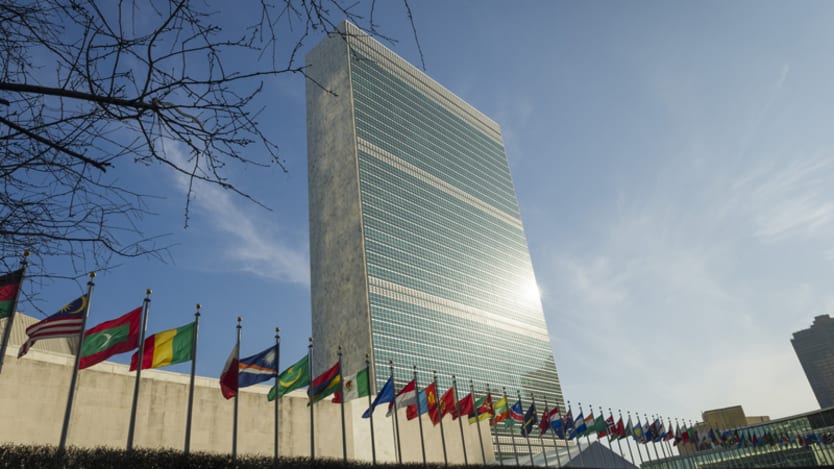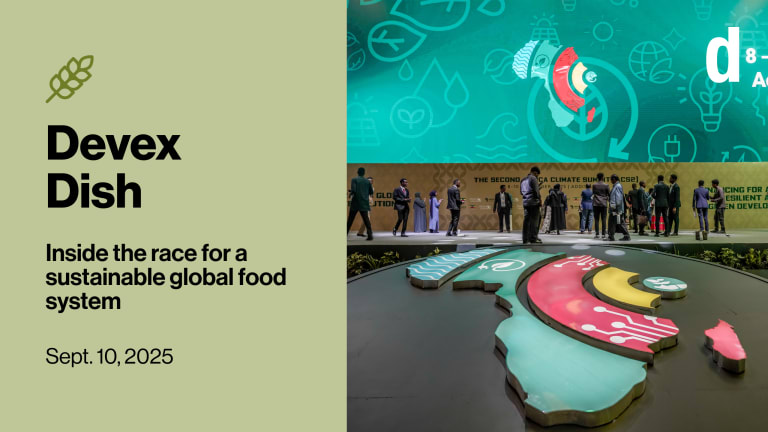
An annual review of the Sustainable Development Goals is underway at the United Nation’s high-level political forum in New York — but indigenous leaders attending the summit stressed the need to look beyond the U.N. for an accurate take on the health, environmental and poverty challenges facing some of the world’s most vulnerable people.
“I cannot go home and talk about Goal 1, reducing poverty. The majority of people do not know what it is. What can work is telling them the reality,” Hindou Oumarou Ibrahim, coordinator of the Association for Indigenous Women and Peoples of Chad, told Devex. “I can tell them, ‘We are poor because our environment is shrinking, so what can we do to manage our natural resources better?’” But “most of these [SDG] indicators are not reflecting the realities,” he said.
A lack of disaggregated data makes it difficult to truly track progress in many cases, the leaders said. They are in the early stages of rolling out a new qualitative system, known as the Indigenous Navigator, which will encourage communities to understand their rights and to play an active role in measuring their access to health, education, employment and natural resources.
“We need to speak out. We need to be part of data engagement. We should be the ones measuring how progress is done,” said Joan Carling, co-convener of the Indigenous Peoples Major Group. “If governments are going to be the ones reporting on the progress of indigenous peoples … then we will all hear all the good things that are happening. But it is a complete disconnect with what is happening on the ground.”
This gap between expert-led analysis and on-the-ground realities underlines the need for data flowing from indigenous groups — as well as direct consultations with indigenous communities — Ibrahim and two other leaders from the Philippines and Peru said at the U.N. summit last week.
The event is taking place just two weeks after indigenous leaders learned that governments, including China and Russia, had blocked their collective bid for an observer seat at the U.N. General Assembly.
While indigenous people constitute about 5 percent of the global population, they make up 15 percent of the extreme poor.
Indigenous peoples push for permanent seat at UN
Indigenous leaders and representatives worldwide are convening at this year's United Nations Permanent Forum on Indigenous Issues, which runs through May 5. One issue they are lobbying for is regular access to the U.N. and a seat at the General Assembly.
“Political will [at the U.N.] is still lacking,” said Carling during a press conference at the summit. “You look at how the consultations go, and indigenous people still remain largely invisible.”
There was disappointment that indigenous leaders were not given speaking slots on some of the SDGs — including on zero poverty — at this year’s summit, according to Joji Carino, a senior policy advisor for the U.K. charity Forest Peoples Programme and a member of the Indigenous Peoples Major Group.
Some of the SDG indicators include specific targets for indigenous people, such as boosting the average income of small-scale food producers by sex and indigenous status. Yet most national governments do not collect statistics based on ethnicity, Carino says.
The navigator, which is funded by the European Commission, will make its public debut during the opening of the U.N. General Assembly in New York this September. Already, Carino and colleagues have led training sessions on how to use it with indigenous communities in 11 countries.
The navigator is presented as a series of questions, rather than indicators, and has two branches: one focused on national issues, such as whether national legislation recognizes indigenous groups as distinctive peoples with collective rights; the second branch is more community-focused, with questions on issues such as birth registration within the community, sexual assault and whether they have experienced conflict over land and resource ownership.
“Currently the U.N. human rights monitoring framework is very much an expert-led process,” Carino explained. “The work the navigator focused on was translating the traditional monitoring framework into simple tools that communities could directly carry out themselves.”
The navigator serves multiple purposes: to educate indigenous communities on their human rights; and then, through community meetings, to collect relevant information that could impact awareness and change at the local level, Carino explained to Devex.
“Communities can directly answer on the issue of the right to education [for example], so the community would be answering [the question]: ‘How accessible are schools for your communities?’” said Carino. “The communities themselves are the ones addressing the implementation or the delivery or the respect for those rights. It is a question that will measure if indigenous peoples are able to exercise their rights.”
The high-level political forum on the SDGs continues at the U.N. through July 19.
Read more international development news online, and subscribe to The Development Newswire to receive the latest from the world’s leading donors and decision-makers — emailed to you free every business day.








